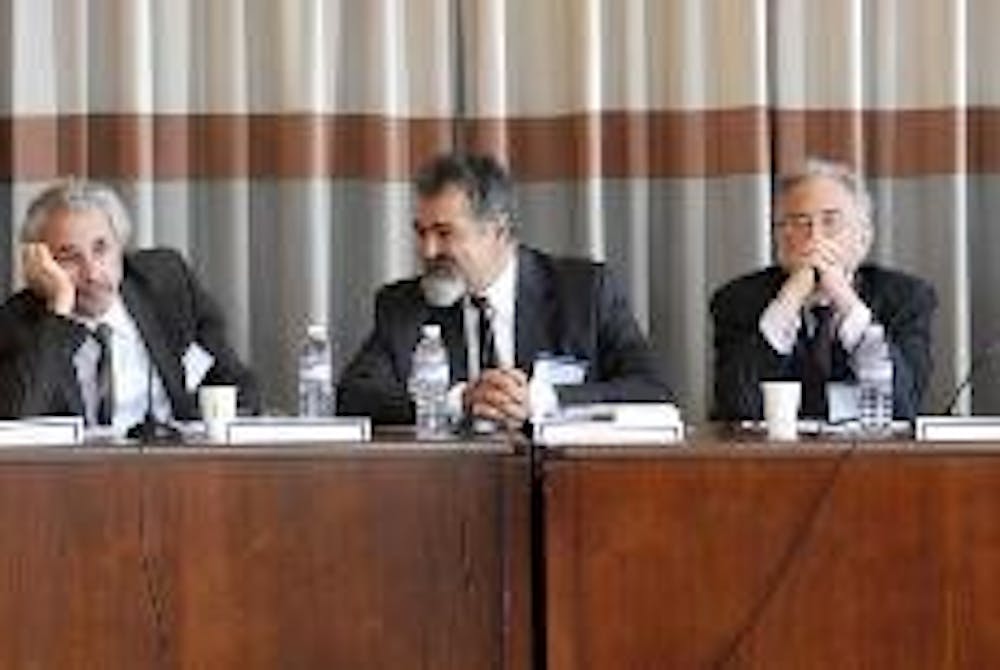
A former U.S. ambassador said yesterday that Iraq's constitution is a plan for splitting the country up - and that might not be the worst thing.
Speaking at a special event at the Law School yesterday, former ambassador to Croatia Peter Galbraith said the constitution was a "roadmap for partition" of the country into more autonomous regions.
The document plans for an Iraq that has "almost no central government," he added. But, he said, that could be appropriate for a country where strong regional autonomy is the reality.
Drafts of the constitution were given to the about 70 members of the audience before the talk.
Galbraith said that the country is already broken up into regions because Kurdistan is governed independently in northern Iraq, and that the process would be hard to turn around.
It would be a "big mistake for the U.S. to try to put Iraq back together," Galbraith said.
Galbraith was followed by remarks from Samir Sumaidaie, the Iraqi ambassador to the U.S., and Hamid Al Bayati, the representative of Iraq to the United Nations.
Sumaidaie disagreed with Galbraith's opinion and said that Iraq cannot easily be separated into "three tidy regions." He added that Shiites and Sunni Arabs have integrated and inter-married, and that Kurds have already decided to remain as a part of Iraq.
"The Kurds have entered an honorable agreement to preserve Iraq," Sumaidaie said.
He added that it was the expressed desire of both the international community and the region to uphold the "unity and territorial integrity of Iraq."
Sumaidaie reminded the audience that the United States survived a civil war and emerged as a unified country.
"Let's not write the obituary of Iraq prematurely," he said.
Al Bayati, who spoke last, said that Iraq faces a crisis which the U.S. and Iraq need to solve.
"If the Americans and the Iraqis cannot solve this problem, who on earth can?" Al Bayati said. "What is the solution? Cut and run? This would be the biggest victory for terrorists."
Galbraith added in the end that although he agreed with much of what the other speakers said, he believed it was "too late to create a unified state."
The three speakers shook hands after their remarks, and Galbraith exchanged business cards with both Iraqis.
Audience members asked questions of the ambassadors after their remarks.
One audience member said that the ambassadors have a responsibility of solving Iraq's problems before the situation in that country degenerates into a catastrophe.
Sumaidaie responded warmly, saying that while he found it hard to negotiate politics in the United States and the U.N., which he described as a "multi-headed monster," he was doing his best to find a solution to the complex problem of Iraq's future.
The Daily Pennsylvanian is an independent, student-run newspaper. Please consider making a donation to support the coverage that shapes the University. Your generosity ensures a future of strong journalism at Penn.
DonatePlease note All comments are eligible for publication in The Daily Pennsylvanian.




